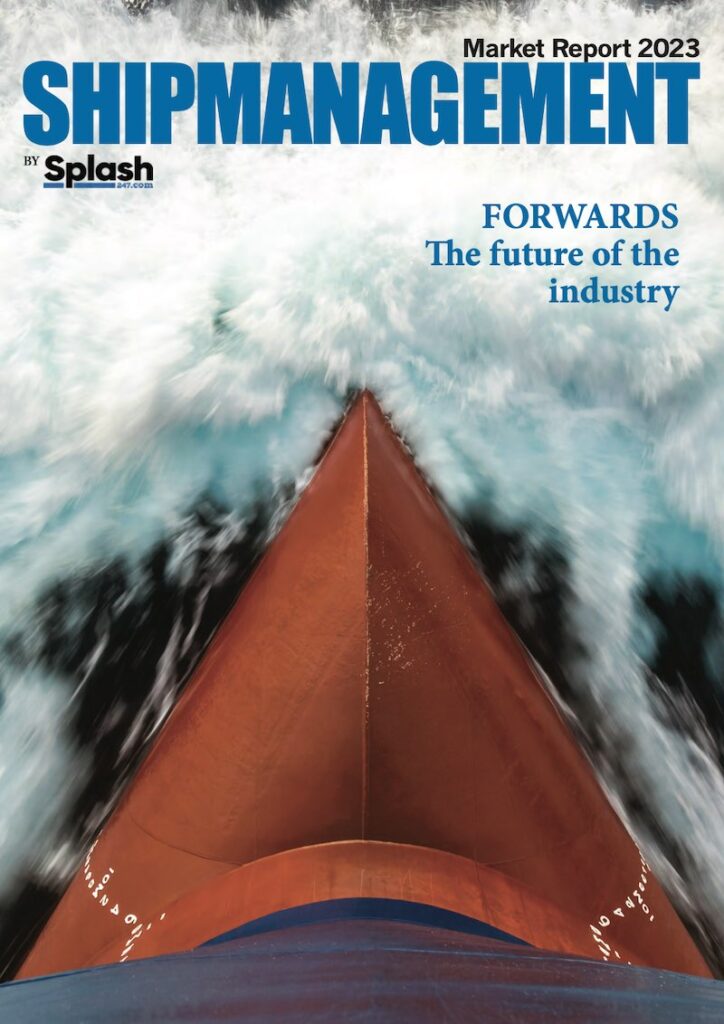Shipmanagement business model under pressure

Much of Splash’s brand new shipmanagement magazine is focused on how the business model of the shipmanagement sector will change with many contributors sure the old ways of doing business are set to be jettisoned.
Rajiv Singhal, who heads up MTM Ship Management, is not alone in saying he sees the business as a whole growing in no small part thanks to greater statutory and regulatory compliance coming into force.
Kristofer Karlsen, business development manager at Norbulk Shipping, says the increasingly complex regulatory environment is especially felt among smaller-sized owners.
“The complexity of the trade and the convenience in outsourcing are the two major drivers that have kept shipmanagers in the game for decades,” says Vinay Gupta, managing director of Union Marine Management Services (UMMS). “Both the factors today are more relevant than ever before and therefore it is only natural for this business to flourish,” he asserts.
“Increased regulatory demands, zero tolerance for sub-standard shipmanagement by cargo majors and a shrinking crew pool are some of the key drivers of increased demand for shipmanagement services globally,” says Harry Banga, chairman and CEO of the Caravel Group, parent of Fleet Management.
Marlon Rono, president and CEO of Philippines-based Magsaysay People Resources Corporation, says that the business of shipowning is getting harder as requirements and expertise are constantly evolving, however while this ought to be great news for all managers, Rono says the only managers set to profit are those with suitable scale.
Alex Albertini, who runs Monaco-based shipowner Marfin Management, agrees, telling Splash: “With critical mass and scale managers can provide a good profitable service, and with the increase in regulation prove their relevance.”
The current business model is sustainable, argues Philip Fullerton, managing director of Northern Marine Group, as long as the ship owner / ship manager relationship is allowed to mature, and the output is seen as collaborative whereby the shipowner acknowledges the added value a good shipmanager can supplement their business.
“Shipmanagement should not be viewed by shipowners as being commoditised as there is much more to differentiate shipmanagers than simply price alone,” cautions Fullerton.
Qualitative approach
From a quantitive perspective, shipmanagement continues to grow in line with the expansion of the merchant fleet, but, according to the boss of Synergy Marine Group, the real growth going forward will be qualitative.
“As the complexity of both the regulations and the ships themselves increases, so the shift away from fee-based outsourcing morphs into more substantial win-win relationships,” says Rajesh Unni, who founded Synergy in 2006.
Shipowners don’t want to simply offload their shipping needs to a third-party manager, Unni claims. The best now seek out long-term constructive and proactive relationships with technical partners who can help them achieve their strategic goals.
Increasingly, Unni says managers are selected and remunerated based on the value they create for the owner, with that value transparently benchmarked via contracted key performance indicators.
Whether the challenge is operational or commercial, whether it’s about digitising or decarbonising, the leading owners want a “thought partner” willing and able to help them meet their goals, Unni says.
Ripping up the old parameters for how we judged shipmanagers evolving, Unni claims: “The real growth for shipmanagers is not about vessel numbers or revenue, it’s about creating value for owners.” And this, he says, is achieved by helping them meet the qualitative targets of their stakeholders, and their own customers.
In-house managers in peril?
Flipping the business model question on its head, Bjørn Højgaard, CEO of Anglo-Eastern, questions whether in-house ship management is sustainable.
“The reality is that regulation, cost and technology are driving the need for scale in ship management, and what the shipmanagement industry is doing is simply to allow like-minded owners to club their ships and take advantage of the scale benefits that this provide,” he says.
Mark O’Neil, president of Columbia Shipmanagement, nails it when observing: “If managers are not able to offer more for less than owners are able to offer, and more for less and better, then the model is unsustainable.”
Finn Amund Norbye, group CEO of OSM Maritime Group, says that while shipmanagement as a business is growing, organic growth is “quite limited” hence why the significant growth at OSM has been through the take over of shipping companies’ own shipmanagement organisations.
Mindset change
David Borcoski, CEO of ASP Ship Management, concedes that a mindset change is needed.
“Margins have certainly reduced markedly in the last 20 years, so we think that the industry will move to a more results-oriented pricing that rewards improved operating efficiency,” Borcoski says.
Tanuj Balani, a director at marine compliance firm Stag Marine, is one of many respondents who sees plenty of mergers and acquisitions coming, a recurrent theme throughout this magazine.
Another important trend he sees is managers seeking out cheaper climes to base parts of their business.
Shipmanagement veteran Manish Singh, previously CEO of Ocean Technologies Group and prior to that with V.Group, reckons that the old mindset whereby anyone with a Document of Compliance (DOC) is by default a shipmanager is no longer sustainable.
“We will see a handful of blue-chip managers break ranks in the next few years and disrupt what shipmanagement is as an outsourced service proposition. The standard shipmanagement contract needs to be torn up and re-written in the current context,” Singh says, arguing that while barriers to entry remain low, barriers to success have become a great deal higher over the past decade.
Singh is predicting that the shipmanagement total addressable market will grow at least by a high single digit compound annual growth rate with as much as a third of the global merchant fleet outsourced by 2030.
“Under pressure by end customers, stakeholder demand for demonstrable ESG adoption will make many also rans unviable in a few years,” Singh predicts.
“The current model of managing assets is certainly transitioning,” concedes Arvind Mohan, the managing director of Viridian Maritime. “It still remains sustainable however in a short span of time, this will need to change,” he says, stressing that managers today need to have an “ever evolving mindset”.
This article is one of many reports carried in our brand new 68-page Shipmanagement Market Report. Splash readers can access the full magazine for free by clicking here.


There is lack of information and perspective of the writer in the article. It just reports who says what about the situation.
Good compilation of different view points on ships and ship – management.
Clarity is yet to emerge on ship opertion, ceww management and cargo-cum voyage planning.
Wish the present sea farers All the Best in these conditions!
Any ship manager can cut costs by running a ship down. Everyone knows this, and everyone also knows that with a little knowledge of the dark arts any ship manager can get away with it, as long as the owner, or just the owner’s CEO, is inexperienced in the technical aspects of ships and shipping.
The interest of the manager is not the same as the interest of the owner, and nothing is being done in ship management contracts to make them the same.
There are admirable ship managers, but there are also the rest. How is an owner to tell one front the other?
For shipowners they are also facing problems with stricter environmental emissions regulations that could cost a series of short-term challenges for the shipping industry. According to a recent article, these new regulations depend heavily on certain technologies.
Most of these technologies aren’t reliable and haven’t been universally approved. So companies may lose profit as they spend billions for technologies that may not even work yet.